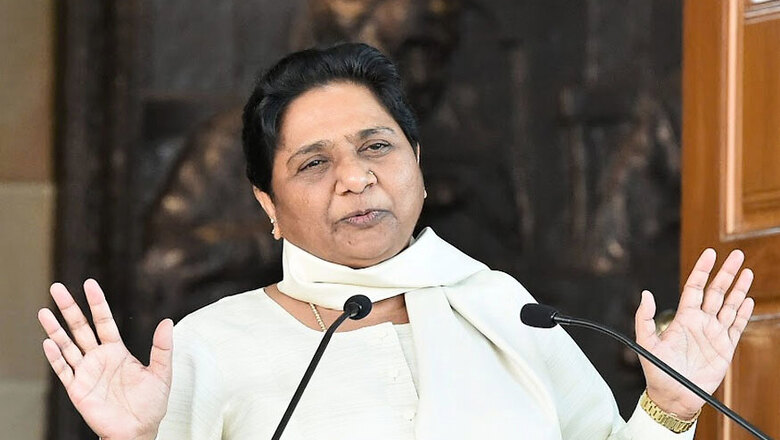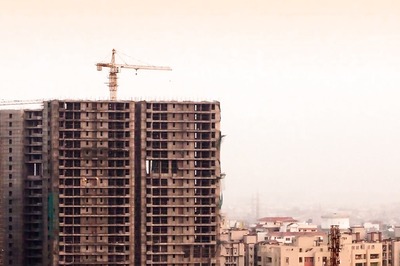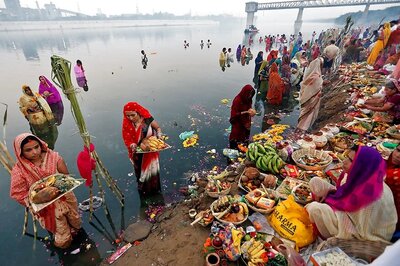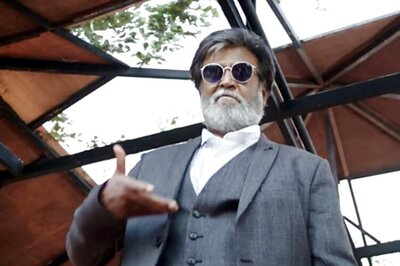
views
New Delhi: The uncertainty—both political and otherwise—had been hanging about in the air for almost three week. The recalcitrant south-west monsoons, as usual, were a tad late in crossing the Vindhyas. Delhi was under the spell of an oppressive humidity when 60-odd Lok Sabha MPs of the united Left Front withdrew support from the Congress-led United Progressive Alliance (UPA) government 10 years back, in July 2008.
A senior Congress manager, in-charge of mustering numbers for Manmohan Singh government, got a call from a journalist a couple of days ahead of the trust vote to enquire if Rashtriya Lok Dal (RLD) with its 3 MPs were firmly with the UPA. While the trusted Gandhi family loyalist listed reasons behind Ajit Singh joining the flock, the RLD leader was already on his way to meet Bahujan Samaj Party (BSP) chief Mayawati at latter’s Humayun Road bungalow promising to vote against the confidence motion.
Ten years after she took the lead role in the no-confidence motion precipitated by the Left, Mayawati is again making a carefully calibrated but a determined bid at power at the Centre. The only difference is: in 2008 she led the alternative front from a position of strength as the CM of UP. Now she does not even have enough legislators to send a single MP to the Rajya Sabha. And yet—as both her allies and opponents understand all to well—the Dalit czarina is that indispensable cog in the wheel of the opposition chariot being put together for the battle royale in 2019. That one picture with Sonia Gandhi with Mayawati at Kumaraswamy’s swearing-in ceremony says it all.
In the last one year, since losing comprehensively at the hands of the BJP in the Assembly polls, the BSP leader has made some tactical changes which in many ways mark a watershed moment in the brief history of the party built from scratch by Kanshi Ram.
Since assuming the reins of the party, there have been innumerable occasions when the BSP could have been in power as a minor partner outside UP. Many such opportunities arose, when the BSP bailed out governments in crisis. Her two MLAs saved the Harish Rawat government in Uttarakhand a couple of years back. But Mayawati consciously declined to participate in the government formation outside UP.
The Assembly debacle of 2017 has made Mayawati seek partnerships outside her citadel in UP. Hers is the only party after the BJP and the Congress which has a truly national footprint. In terms of votes, she stood third after the BJP and the Congress in the last general elections, though her party could not win a single seat. She has a political constituency, though spread thin outside UP, that can provide the requisite top-up votes to tilt scales in close electoral battles. And now there are signs that she is willing to exploit this assiduously built political reserve for a national role.
So in Karnataka, Behenji aligned with Janata Dal (Secular) and the party now has a minister in the Kumaraswamy-led government. But more than that, in the process she has build bridges with a regional party which would be party of any possible non-BJP alternative at the Centre.
Last week she has met Ajit Jogi, the Congress rebel who is seeking to emerge as an alternative to the Raman Singh dispensation in Chhattisgarh. Her party has announced a pre-poll tie up with Indian National Lok Dal in Haryana. In Uttar Pradesh, she has displayed remarkable pragmatism to bury hatchets with her avowed bete-noire in Samajwadi Party to lay foundation for a pre-poll alliance against the BJP.
Even as she goes about assiduously positioning herself seeking to strike rapport with regional satraps, Mayawati has been careful not to antagonise the Congress party. She is yet to open her cards on a pre-poll tie up with a debilitated Congress in Madhya Pradesh, Chhattisgarh and Rajasthan. That bridge she will cross the bridge closer to the elections. To materialise her national ambitions, the BSP chief knows all too well Congress’ consent in the election of the leader of the opposition front would be critical since the grand old party would willy-nilly emerge as the largest single block in any alternative front.
This subtle positioning for a larger role is also evident in the recent press statements released by the BSP with quotes from its party president. Be it the video on surgical strike to atrocities against SC/ST, the issues she has underscored in her political statements addressed of late have a greater national resonance.
Mayawati was also quick to assess the negative fallout of any resistance towards delay in vacating government bungalows of former UP CMs as ordered by the Supreme Court. She took some mediapersons on a tour of the house that the BSP claimed was a memorial to its founder Kanshi Ram and displaying discernible political maturity she handed over the keys to the estates department in Lucknow.
It is highly unlikely that opposition will form a grand nationwide mahagathbandhan to challenge the BJP’s political hegemony. Alliances will be state specific and tactical. Leadership issues will be settled post poll.
In such a scenario, the one who commands larger acceptability can emerge as the leader. BSP chief Mayawati is honing her strategy for any such eventuality with a dispassionate precision.




















Comments
0 comment